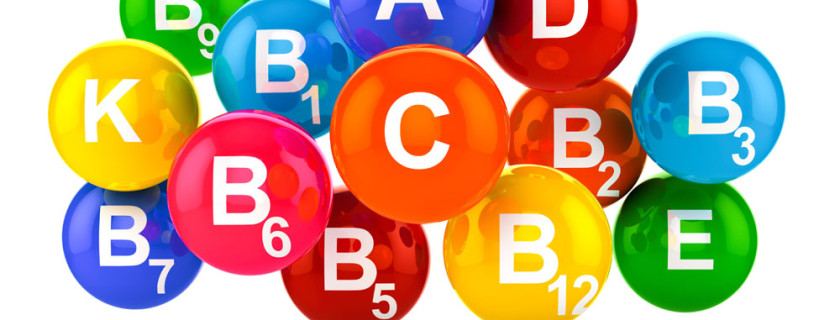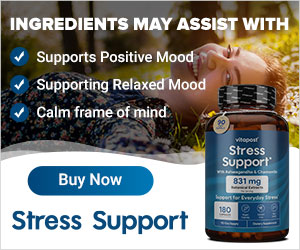Most people suffer some kind of anxiety at least once in their lives, and consider it a problem requiring treatment. Lack of sleep and appetite, low concentration levels, lethargy and restlessness, irritability and impatience are some of the initial and basic symptoms of anxiety. But if the condition becomes chronic, more serious symptoms are also witnessed, including headache, excessive sweating, dryness in the mouth, stomach problems, tightness in the chest, irregular heartbeat, muscle tension, dizziness, nausea and tremors. In certain cases, anxiety can even prove fatal for a person.
Medication is usually resorted to by patients of anxiety only when other, more natural treatments fail. In the initial stages, in particular, people prefer the natural ways of treating anxiety. One natural therapy for this problem is vitamins and other supplements. Vitamins, in particular, are seen to be quite effective in the treatment of anxiety, taken either individually or collectively, depending on the type and severity of your anxiety problem. Let’s see which vitamins work well in the treatment of anxiety, and why.
The guaranteed way to beat your anxiety!
How vitamins help
Among other factors, vitamin deficiency is also considered to be a cause of anxiety. Deficiency of the vitamin-B group and vitamin C in the body can lead to nutritional insufficiency. Other vitamin deficiencies can also contribute to anxiety problems. (I’ve written a whole blog post about vitamin D and anxiety, so be sure to check that out as well.) While in some cases, vitamin deficiency is seen to trigger anxiety it can also aggravate an existing anxiety problem in others. So if you find an anxiety patient becomes more irritable or stressed, the reason may lie in the deficiency of vitamins in the body. Vitamins, taken naturally or as supplements, can help boost the deficient vitamin levels, thus restoring the nutritional balance of the body. Combining vitamin supplements with magnesium, whose shortage is also a culprit when it comes to anxiety, works even more effectively in treating anxiety. Vitamins do more than just alleviate the symptoms of anxiety; they actually strike at the root of certain forms of anxiety by boosting the body’s nutritional levels.
Vitamin B-complex
Low levels of vitamin B6 and vitamin B3 are seen to be a major source of anxiety. Deficiency of these vitamins causes imbalance in the neurotransmitters of the brain. Neurotransmitters are natural chemicals which function as mood boosters. They work by transmitting signals between the cells of the brain. Serotonin is one vital neurotransmitter that plays a critical role in enhancing mood. Certain antidepressants are prescribed to boost the efficacy and efficiency of serotonin. However, this can also be done through natural therapy by increasing the intake of vitamin-B complex. Vitamin B6 (pyridoxine) and vitamin B3 (niacinamide) help your body convert the amino acid tryptophan into serotonin by conserving the former. Vitamin B1 (thiamine) is also known to be an excellent anxiety reliever. These vitamins help stabilize the lactate levels in your body to strengthen the nervous system, thereby keeping anxiety at bay.
Vitamin B12 (with folic acid)
Apart from serotonin, there are two other neurotransmitters whose deficiency in the brain can lead to anxiety bouts. These are dopamine and norepinephrine. Dopamine is a substance that controls the emotional responses of the brain by influencing the emotions of pleasure and reward. It controls the adrenaline levels in the body, and its deficiency can lead to mood swings, memory loss, addictive or obsessive behavior and fatigue. Norepinephrine is your body’s stress hormone, which gets secreted in times of stress. If your body fails to release this chemical in sufficient quantities, the stress factor gets accentuated, leading to anxiety. Norepinephrine not only increases the oxygen going to your brain, it also boosts your heartbeat and breathing rate. It energizes the body by increasing the release of glucose (sugar) and boosting the metabolic rate of the body. Deficiency of norepinephrine, therefore, causes your vital body processes to slow down in a ‘fight or flight’ situation. This usually results in taking flight by surrendering to the stress or anxiety. When there’s insufficient norepinephrine or dopamine in your body, it becomes imperative to meet the deficiency through supplements of vitamin B12 and folic acid.
Vitamin C and Vitamin E
These two vitamins are also seen to be quite effective in tackling anxiety related health problems. Vitamin C works by tranquilizing the brain. It manages the functioning of the brain and the adrenal glands, thereby facilitating a soothing effect on the mind and alleviating the symptoms of anxiety. Vitamin E, on the other hand, functions by boosting the transportation of oxygen to the brain. And if your brain gets sufficient oxygen, it’s better able to handle any stress that could possibly lead to anxiety.
Why not beat your anxiety and panic attacks already today? Start here!
Conclusion
While vitamin supplements may be needed to cure serious vitamin deficiencies in the body, simple dietary changes can also help in some cases. You can increase your vitamin D intake by eating eggs and fatty fish, or can help your body make its own through exposure to the sun’s rays. Vitamin B can be ingested especially through certain nuts (like pistachios, pecans and walnuts) but also vegetables and fruits, as well as meat and turkey. Sunflower seeds, almonds and hazelnuts are wonderful sources of vitamin E. Nutrient-dense food helps fight many diseases and symptoms, so be sure to omit all the junk from your diet and eat only nutritious food. For special anti-anxiety recipes, be sure to check the recipe section of this blog and my other blog which is completely concentrated on simple and healthy recipes.
Ideally, you should go for what works best for you, after taking your doctor’s advice. So if your doctor feels dietary and lifestyle changes are enough to meet your vitamin deficiency, it’s best to go for such changes to beat your anxiety. However, if simply making changes in diet is not helping, you probably need to supplement your food with additional vitamins. Your doctor can tell you which vitamin supplements you need to take. He will also tell you the best way to supplements in terms of dosage, frequency, etc., while taking care of possible allergies, side effects and interactions with any medicines you may be taking.






